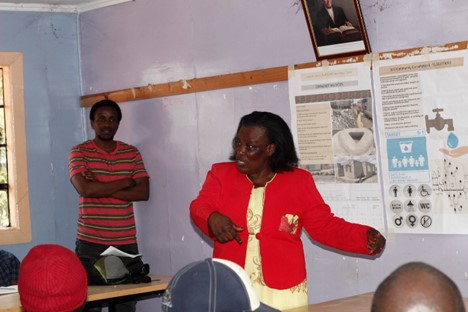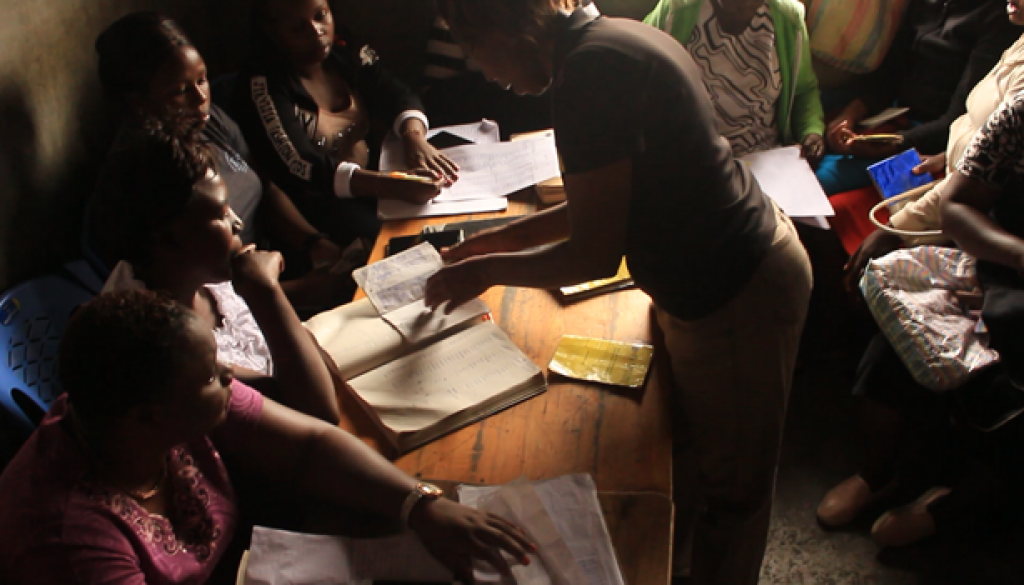Leadership by women: Perspectives of grass root leaders
In this blog by Jackline Waithaka and Jane Wairutu the issue of women’s leadership is explored through the identification of women making change in the informal settlements of of Nairobi, Kenya.
The world has witnessed the emergence of women leaders most of whom have rose to break the traditional glass ceilings that barred them from taking up leadership positions despite possessing the necessary skills. Over time, women have constantly evolved realizing new roles. Their progress within the society has proven substantial yet uneven as women all around continue to be vastly underrepresented in decision making as well as community set-ups. These are the facts, and they tell a story. A story of resilience and enthusiasm to lead despite the setbacks encountered.
When supported and empowered to take up leadership positions, women have exhibited the ability to lead. They have successfully demonstrated the ability to lead through organizing around issues that are fundamental to them and in the long run advance their interests for overall well-being of a community.
The Kenya movement of Slum Dwellers demonstrates that facilitating women’s leadership builds a culture of self-confidence and empowerment thereby inspiring continuous wave of female grass root leaders interested in carving out a different narrative for their communities. Paving way for emergence women to become leaders is no mean feat, however, for over 20 years, the federation has sought to support women leaders who make a large number of leaders even with the alliance, and are always seeking ways to uphold this practice in a bid to build on its vision of sustainable and inclusive communities.
Gender barriers in leadership and solutions
Being a woman, they saw as though we had no power. But because there were many of us, we combined our forces together. We did not shy, nor did we back down.
Anastacia Wairimu, Kahawa Soweto
To date, women face limited access to leadership positions despite the strides undertaken in creating positions of power for women. Anastacia Wairimu, a national federation leader who has served as a leader within the federation for fifteen years admits to having faced opposition from male counterparts. As a means to navigate through opposition from the men, Anastacia explains on importance of leveraging on their numbers in order to claim their spaces as equally competent leaders in their community.

Women leaders all around the globe are still a minority as men continue to outpace women in leadership roles in most sectors. Inclusivity in leadership remains a significant gap to address as a means to ensure achievement of gender balance within positions of power.
Nancy Njoki, also a national federation leader within the slum dweller grass root movement in Kenya, also explains, women leaders are often held to higher standards than men and many occasions, they require to do more than their male counterparts including sharing testimonials in a bid to prove one’s leadership ability.
Such preferences act as biased gate keeping factors hence the growing need for women to proactively communicate their desires to serve in leadership positions. Drawing from federation experiences, providing a supportive space for women to take up minor leadership responsibilities then advance to major responsibilities enables understanding on the importance of promoting gender inclusivity in leadership.
Family and leadership, balancing it all
It comes with its fair share of challenges. This is because even as a woman serving in a leadership position, one still needs to perform their duties as a wife and a mother. This therefore calls for one to work extra hard.
Nancy Njoki, Mathare
Family is the foundation of communities and in many settings women who double up as mothers and wives within the family setup, play a vital role in the wellbeing of a family. Women who have overtime actively claimed leadership positions within the society while taking on their family duties have demonstrated what women can do. Determining how best to align family and leadership requires consideration of both sides.
Nancy Njoki who doubles up as a mother of four, and has served as a national federation leader for ten years, explains it requires double effort to successfully juggle between the roles.
Over time women leaders have had to confidently grow into their leadership positions in order to address issues that in the past, they were unable to. In some cases, this has resulted to conflict at home or with society as Nancy Njoki further notes. It is therefore critical for women leaders to communicate with their families to ensure they understand their participation in federation activities which are geared to create positive change within the community.
In order to strike a balance, it requires carefully structuring and planning one’s activities in a bid to achieve the balance.
Navigating through the roles and leading change
It requires commitment and may take up most of your time. Commitment to other social issues can easily be overridden by leadership duties.
Emily Wangare, Mathare

Women have steadily emerged in leadership roles bringing to the exercise of leadership an arsenal of strengths.
Through volunteerism, and helping to amplify issues of the most marginalized, leaders such as Emily have taken up exceptional roles thereby contributing substantively to the development of their communities. Through her leadership role in Mathare, Emily has capitalized on her position to participate in matters community organizing through mobilizing community self-help groups in Mathare among other organized groups, and has mentored them through the essentials appertaining loan application for livelihood. Over time, the federation’s savings model mainly has given rise to the emergence of more female leaders within grass root communities as has evolved as a tool that has largely increased women’s participation in the federation.
Additionally, when community has faced eviction threats, Emily emerged at the forefront to carry out advocacy around the issued threats, a move that enabled the formation of cooperatives and as a means to lobby for community land. As a result of frequent confrontations with authorities and leading collective advocacy efforts, evictions were avoided. Despite the challenges that existed, leaders like Emily have been at the fore front of land eviction struggles in Mathare through activism further highlighting impact of women’s leadership presence on the frontline of resistance to evictions.
Further reflections from Christine Mwelu, also a national federation leader from Mukuru Viwandani, explains how her leadership role also positioned her at the forefront of major community processes. Earlier in March 2017, Mukuru was declared a Special Planning Area effectively freezing development in order to pave way for development of an integrated development plan. For over five years, Christine along with other community leaders took up central role in supporting to mobilize community to participate at every stage of the planning process. Her participation in the process seeks to depict at scale the contribution of women in matters community development if provided a platform.
To sustain the present and future tire of impactful women leaders from low income communities, it is critical to invest in women and set the agenda for continuously nurturing a wave of upcoming female grass root leaders to deliver the envisioned change.
After all, why not women?

03/12/2020 @ 17:52
This is a really inspiring set of stories. It is great to hear about the huge array of skills, insights and resilience that these women leaders have. I hope that they are also able to drive some changes to expectations of women to ‘manage it all’ so that men also step up to the challenge of managing families!